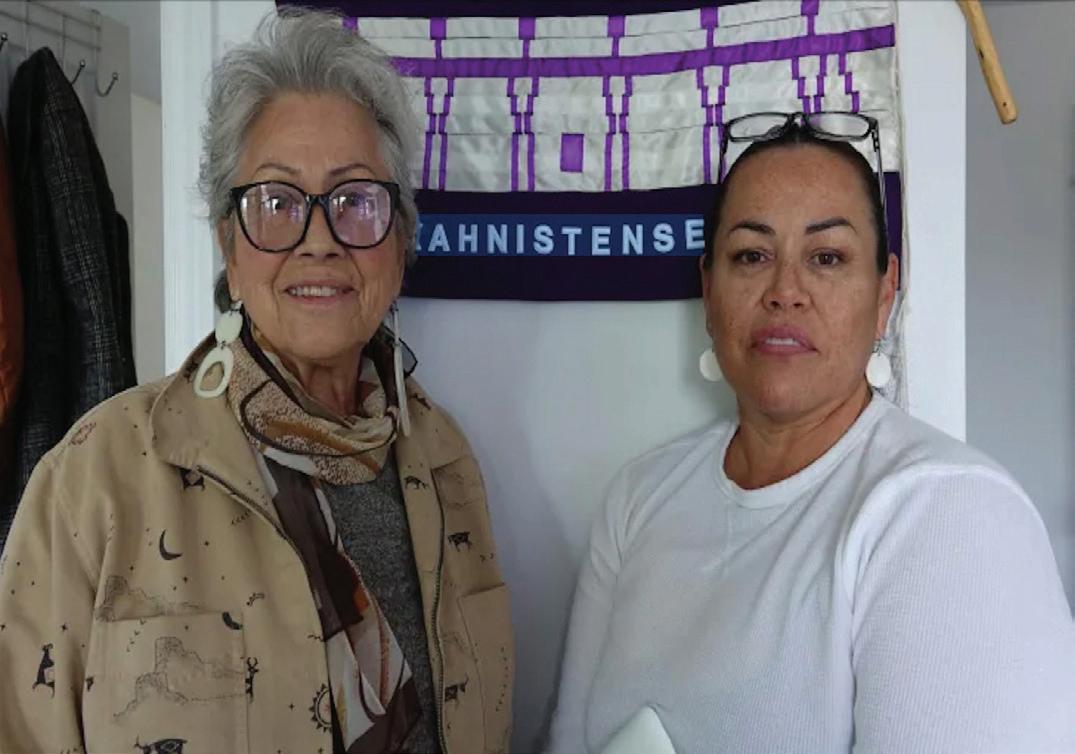
2 minute read
Kanien’kehà:ka Kahnistensera speak at McGill while university attempts to lift New Vic injunction
Mothers urged settlers to educate themselves about Canada’s atrocities against Indigenous peoples
Jasjot Grewal Staff Writer
Advertisement
In honour of International Women’s Day, the Kanien’kehà:ka Kahnistensera (Mohawk Mothers) participated in a roundtable discussion hosted by the Students’ Society of McGill University (SSMU) on March 8. The talk, chaired by Nancy R. Tapias Torrado, a human rights lawyer and visiting fellow at McGill’s Centre for Human Rights and Legal Pluralism (CHRLP), touched on the challenges the Mothers have faced in their ongoing lawsuit against McGill.
On Oct. 27, the Superior Court of Quebec granted the Mothers an interlocutory injunction that halted the university’s New Vic Project over the Mothers’ concerns about potential unmarked Indigenous graves at the site. The order remains in effect until April 27 with the possibility of extension or until both parties, the Mothers and McGill, reach an agreement.
During their roundtable at McGill, the Mohawk Mothers emphasized the importance of their case in the ongoing fight for land rights. Mother Kwetiio believes that the Canadian settler-colonial state continuously violates Indigenous peoples’ rights, but camouflages these violations using structures such as the reserve system.
“It’s still happening to us. Our human rights are still being violated,” Kwetiio said. “As my husband would put it, he says that living on our reserve feels like we’re living in a residential school. We’re constantly being monitored. Our rights are constantly taken away from us.”
The Mothers stressed that the surface-level, performative activism that institutions and powerful individuals engage in cannot be equated to real advocacy for Indigenous groups. Mother Kahentinetha said that while the cultural genocide of Indigenous peoples has been recognized, no real reparations or next steps have been taken.
“The Pope said, ‘yes, it is a genocide,’” Kahentinetha explained. “But now what happens? You don’t hear anybody talking about what they want to do. All they want to do is say, ‘well, I’m sorry about it.’ They want us to forgive them for what they did to us, but then they turn around and live a very good life right on top of our unmarked graves.”
On Feb. 9, McGill filed a motion to lift the injunction on the grounds that while strides have been made during confidential discussions with the Mothers, the two parties still disagree on numerous points, including the Mothers’ methods for archaeological investigation on the site. The motion argues that “the New Vic Project is a legitimate and worthwhile endeavour that is essential to the future of McGill University and is in no way at odds with, or antithetical to, Reconciliation.”
In an email to The McGill Tribune, McGill media relations officer Frédérique Mazerolle explained that McGill remains committed to positive discussions with the Mothers, but that the university will pursue litigation if there is no resolution before the injunction expires.
“If such a resolution is not reached, the matter will proceed before the court given that the order issued by Justice Moore on Oct.27, 2022 is in place for six months,” Mazerolle wrote.
The Mothers remain adamant that all archeological work should centre on direction from qualified professionals and adhere to the guidelines set forth by the Canadian Archeological Association (CAA).
During the roundtable, Kwetiio urged Canadians to show true support for Indigenous communities by researching the atrocities that have occurred in Canada and actively participating in the fight for justice for Indigenous peoples. She would also like universities to revamp their constitutions to properly acknowledge Indigenous history.
“If you learn something and you totally disregard it, then you’re not part of the solution. You’re part of the problem,” Kwetiio said. “It’s harsh to hear that, but if you don’t take the things that you’ve learned and do the right thing, [...] you’re part of the problem.”
McGill’s motion to lift the injunction will be heard on April 20 and 21. Prior to these court dates, there are judicial settlement conferences scheduled for March 22, April 4, and April 6, which will aim to reach an agreement outside of litigation, as recommended by Justice Gregory Moore.









